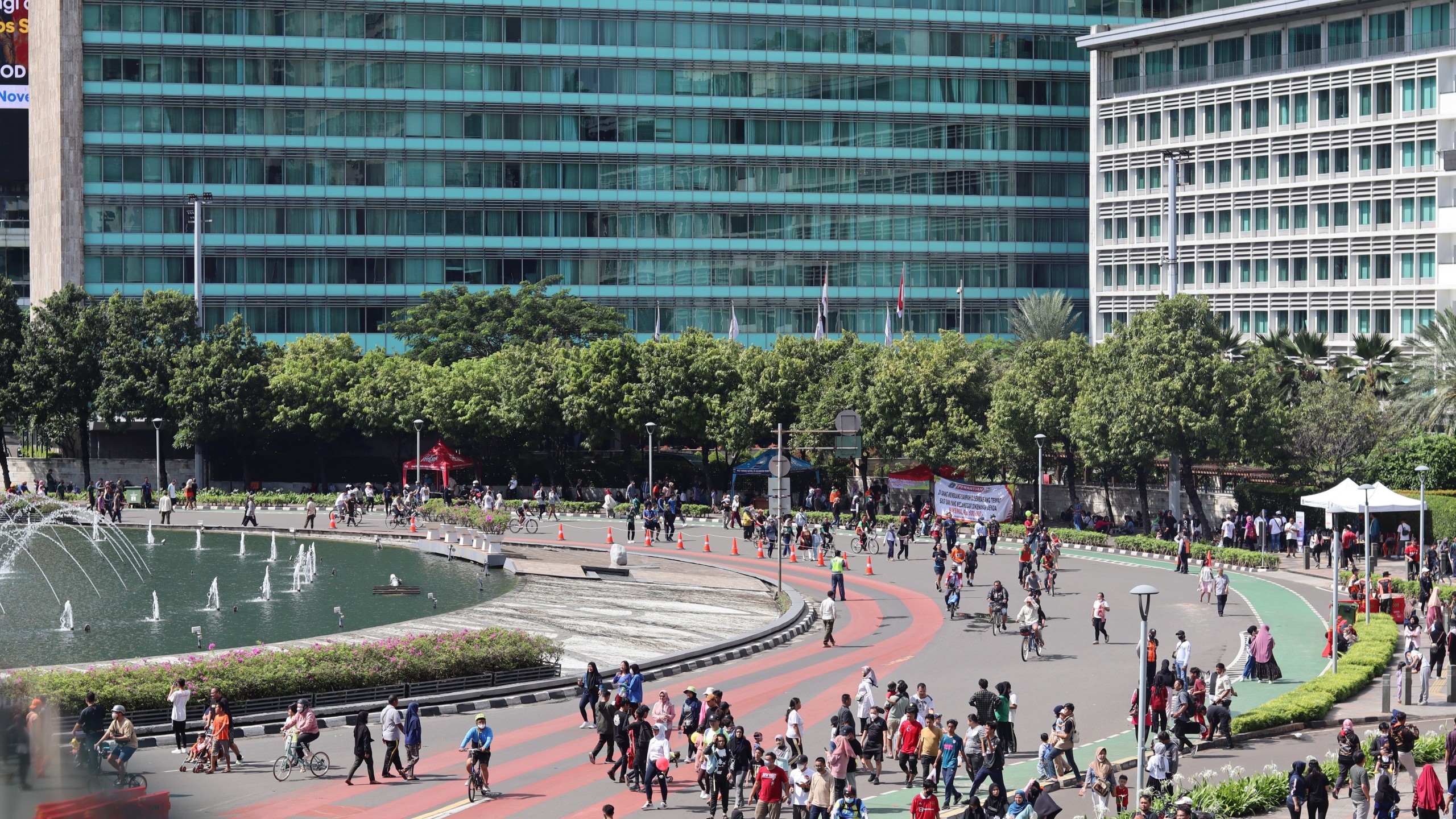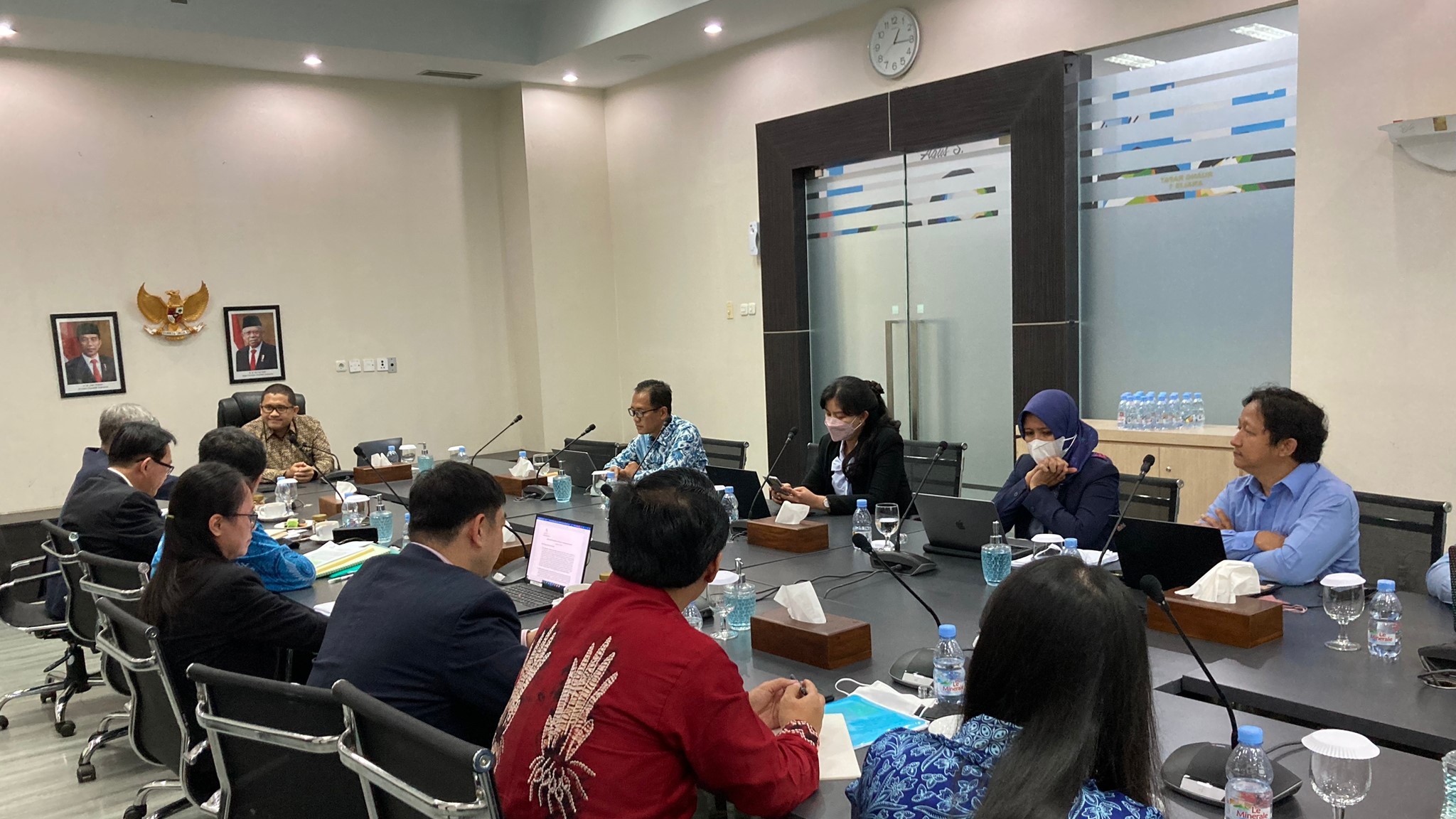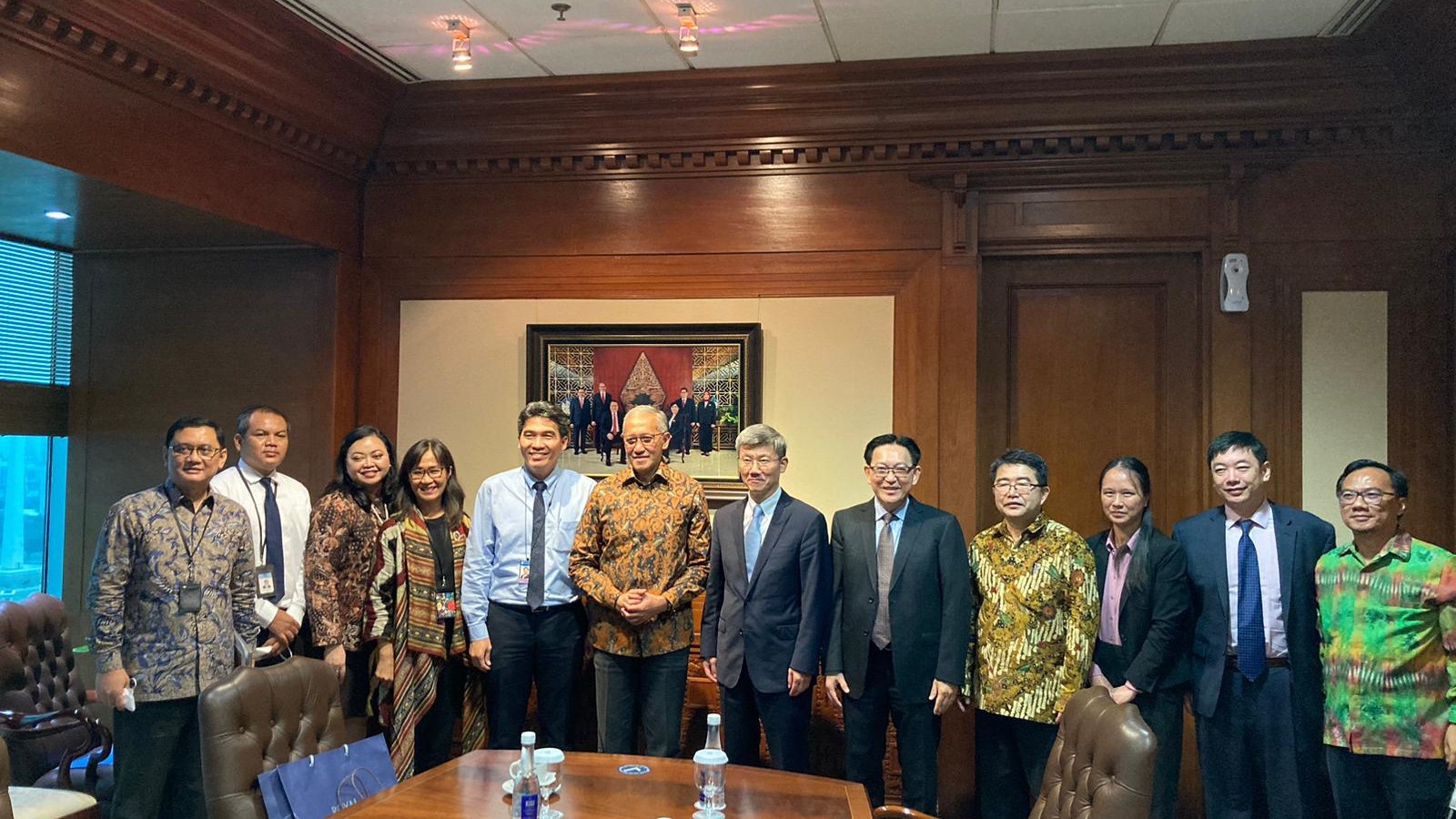
Image: Upen supendi / Shutterstock.com
SINGAPORE, January 12, 2023 – The Indonesian economy posted a firm recovery led by strong domestic demand as consumer and business confidence was sustained, and by robust exports on account of high commodity prices. The authorities are encouraged to continue adjusting the policy mix to contain inflationary pressure while sustaining the recovery momentum in the face of stronger headwinds. This is the preliminary assessment of the ASEAN+3 Macroeconomic Research Office (AMRO) after its Annual Consultation Visit to Indonesia frrom December 5 to 23, 2022.
The AMRO team was led by Lead Economist, Mr. Sumio Ishikawa. AMRO Director, Mr. Li Kouqing, and Chief Economist, Mr Khor Hoe Ee participated in the policy meetings. The discussions focused on the risks and challenges facing the economy of Indonesia, and policy options to sustain recovery momentum and rebuild policy space in the aftermath of the COVID-19 pandemic.
Economic developments and outlook
“The Indonesian economy is expected to grow solidly by 5.3 percent in 2022 and remain firm at 5.0 percent in 2023,” said Mr. Ishikawa. “Solid domestic demand is expected to support the economy amid an expected slowdown in global demand. The implementation of policy mix is warranted to maintain price and external stability while sustaining recovery momentum.”
Recovery momentum was boosted by strengthened domestic demand, while exports benefited from elevated commodity prices and higher value-added from downstream natural resource-based industries. At the same time, soaring global food and fuel prices, intensified by the Russia-Ukraine war, were passed on to domestic prices and lifted headline inflation. That said, the consumer price inflation has been contained relatively to regional peers and is expected to moderate within the central bank’s target range by Q4 2023. The rupiah stability was maintained amidst a strengthened U.S. dollar and elevated global financial market uncertainty. A current account surplus and resilient foreign investment inflows supported Indonesia’s external balance.
Policy responses
The central bank’s policy mix has been appropriately adjusted in response to external headwinds to maintain growth momentum while ensuring financial stability. Bank Indonesia (BI) started to normalize the monetary policy by raising the rupiah reserve requirement ratio. BI also increased its benchmark policy rate to contain rising inflationary expectations and stabilize the rupiah exchange rate. As the banks remain financially sound, macroprudential policies stay relaxed in line with other policy measures of the Financial System Stability Committee to support economic recovery.
Efforts to upgrade payment systems and promote financial inclusion accelerated with the launch of the real-time retail payment system BI-FAST and the expansion of standardized quick response payments at home and with neighbouring countries. In addition, the publication of a white paper on Project Garuda on central bank digital currency is another step taken by BI to improve the efficiency of the payment system in fulfilling its mandate in the digital era.
The government has taken policy measures to contain inflation and maintain people’s purchasing power. These include efforts to strengthen the inter-regional supply and distribution of necessity goods, notably food and food ingredients. To absorb the global commodity price shock, the government raised the subsidy budget for 2022 and kept subsidized fuel prices unchanged. While the government increased several subsidized fuel prices more recently, it provided additional cash transfers and wage subsidies to vulnerable groups.
The implementation of the 2021 tax reform package, coupled with rebounding economic activity and commodity price windfalls, underpinned a strong revenue performance in 2022. The budget deficit is likely to narrow to below 3 percent of GDP in 2022, one year ahead of the government plan. AMRO expects the fiscal deficit will be maintained below 3 percent of GDP in 2023.
Risks and vulnerabilities
Indonesia’s short-term outlook is weighed down by risk of a global slowdown with potential recession in some major trading partners. Meanwhile, a deepening energy crisis may prolong inflationary pressures, and further monetary tightening, especially by the Fed, could extend uncertainty in the global financial markets. On a positive note, recent easing of China’s zero- COVID-19 policy and a re-opening of its borders will benefit the tourism industry and present an upside opportunity for Indonesia.
Challenges facing Indonesia in the medium to long-term arise from the need for an improved investment climate, supported by infrastructure development and connectivity. It is also critical for Indonesia to smoothly transition to a green and sustainable economy, and adapt to demographic changes.
Policy recommendations
AMRO supports the authorities’ continuing adjustment of the policy mix in response to changing domestic and external developments, such as global economic recession, high inflation, and policy rate hikes by central banks of advanced economies. As risks to inflation and capital flows persist, policy measures to contain inflationary pressure and safeguard exchange rate stability remain crucial. At the same time, the central bank should stand ready to conduct monetary policies to sustain recovery momentum if the risk balance is tilted toward a sharp global slowdown.
Targeted policy supports could be refined. Besides the existing credit guarantee and interest subsidy program to micro, small, and medium enterprises (MSMEs), improved bookkeeping should enhance MSMEs’ access to bank financing. Financial inclusion could be strengthened via fintech along with efforts to raise financial and digital literacy. As the loan restructuring program has been extended until March 2024 for MSMEs and selected sectors, banks should be encouraged to prudently continue the program only for viable borrowers.
Fiscal space could be further re-built by implementing revenue-based measures. In particular, the government should continue to implement the 2021 tax reform package. While excess financing has been increased recently in order to provide a fiscal buffer amid ongoing uncertainties, the cost of doing so could be minimized by enhancing cash and debt management. At the same time, efforts to enhance spending efficiency and effective budget allocation to support sustainable growth should continue.
AMRO encourages the authorities to step up structural reforms. AMRO welcomes the authorities’ plan to launch a carbon trading market among coal-fired power plants next year. The newly endorsed Omnibus Law on Development and Strengthening of Financial Sector is expected to reform the national pension system and deepen the domestic financial market. A strong pension system can also support the financing of Indonesia’s infrastructure development needs, besides policy initiatives to raise funds from the private sector.
AMRO would like to express its appreciation to the authorities and other meeting counterparts for open and constructive discussions and their hospitality.
–
About AMRO
The ASEAN+3 Macroeconomic Research Office (AMRO) is an international organization established to contribute towards securing macroeconomic and financial stability of the ASEAN+3 region, comprising 10 members of the Association of Southeast Asian Nations (ASEAN) and China; Hong Kong, China; Japan; and Korea. AMRO’s mandate is to conduct macroeconomic surveillance, support the implementation of the regional financial arrangement, the Chiang Mai Initiative Multilateralisation (CMIM), and provide technical assistance to the members.

AMRO’s team in policy discussions with Ministry of Finance Fiscal Policy Agency Chairman Febrio Nathan Kacaribu

AMRO’s team with Bank Indonesia Deputy Governor Dody Budi Waluyo
